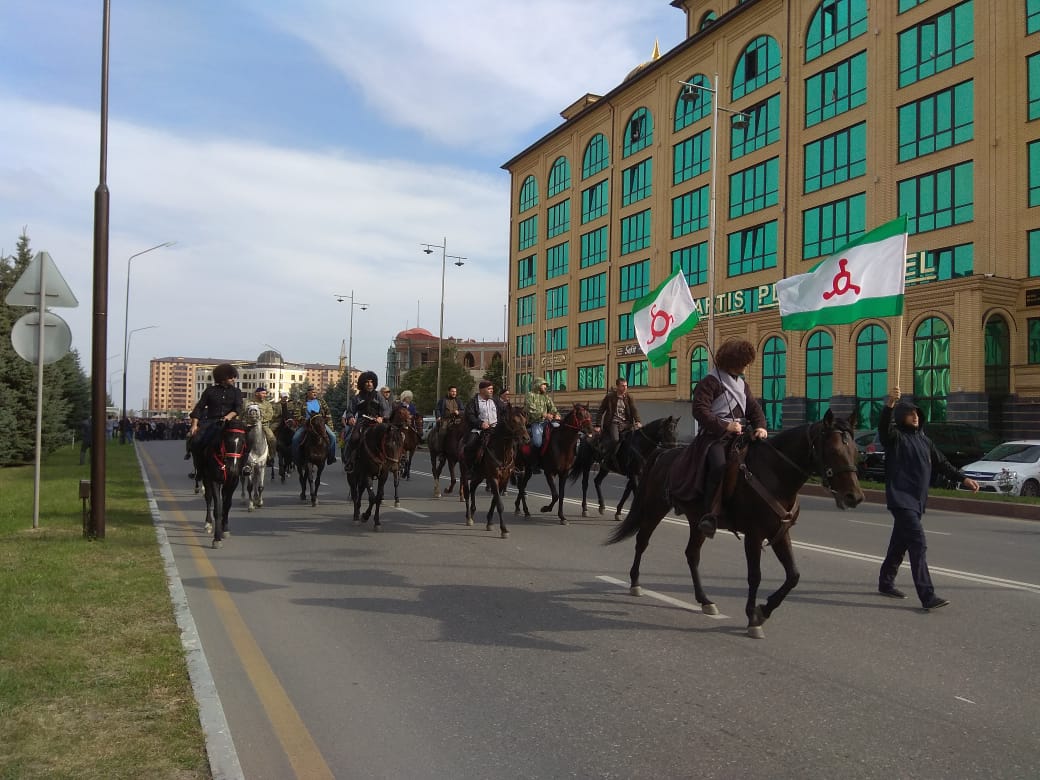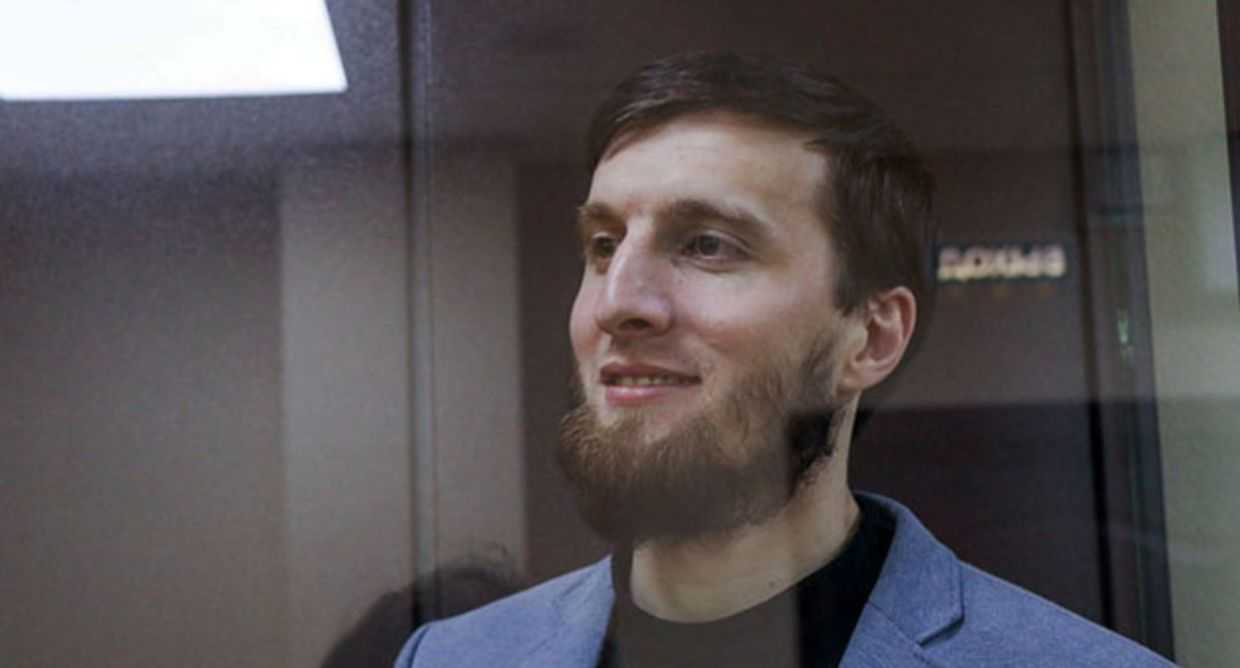

A new criminal case has been opened against eight protest leaders in the Russian republic of Ingushetia, who are already under police investigation for protest related violence. They are accused of organising and participating in the activities of an extremist group.
News of the criminal case was reported to OC Media by Magomed Bekov, a lawyer of the Rostov Regional Bar Association Pravovoy Tsentr (Legal Center) and the lawyer of Musa Malsagov, one of the accused.
According to Bekov, the new charges of organising an extremist organisation were made against Malsag Uzhakhov, the chair of the Council of Teips (clans), Akhmed Barakhoyev, a member of the Ingush National Unity Committee and Musa Malsagov, the chair of the Committee.
Meanwhile, Barakh Chemurziyev, Ismail Nalgiyev, Bagaudin Khautiyev, Zarifa Sautiyeva, and the ex-minister of Internal Affairs of Ingushetia Akhmed Pogorov, who is on the federal wanted list, are accused of participation in an extremist group.
The criminal case, a copy of which has been obtained by OC Media, states that Barakhoyev, Uzhakhov and Malsagov, ‘as leaders of an extremist group, planned, prepared and organised illegal mass events, as well as organised the conduct of extremist crimes during these events’.
If convicted, the activists face 2 to 6 years in prison for participating in an extremist group and from 6 to 10 years in prison for creating an extremist group.
All of the accused were members of the Ingush Committee of National Unity and leaders of the protests in Ingushetia, which took place from October 2018 to March 2019.
The protests were sparked by public discontent in Ingushetia with an agreement on new borders between Ingushetia and the neighbouring republic of Chechnya.
[Read more on OC Media: Turmoil in Ingushetia as protests re-erupt and interior minister ‘sacked’]
‘The Ingush Committee of National Unity is an alliance of social forces and civil society representatives of Ingushetia, which was created during a popular protest in October 2018’, reads the Committee’s statement on Fortanga.org, an Ingush outlet critical of the authorities.
The purpose of the Committee was ‘to uphold the rights of the people of Ingushetia to their statehood and territorial integrity’, the statement reads, adding that ‘all the work of the Committee was carried out in the framework of the current Russian legislation and was not illegal’.
‘Another reason to imprison the activists’
The suspects do not agree with the charge. According to Bekov, one of the arrested, Bagaudin Khautiyev, said during interrogation that he was not a member of an extremist group and did not understand the charges against him.
Fatima Urusova, Akhmed Barakhoyev’s lawyer, told OC Media that her client’s first reaction, when he was formally charge was one of indignation.
‘All the time I would say that we should not allow violence, I was saying that we must act within the framework of law, and now I get accused of extremism?!’, Urusova quoted Barakhoyev as saying.
‘This is another excuse to [imprison] our activists’, activist Abdul-Khamid Yevloyev told OC Media. ‘From the very beginning, the protest leaders called for order and for following the law, including when the riots started. I was at all the rallies and I know that for sure’.
According to Izabella Yevloyeva, an Ingush journalist and protest activist, told OC Media that when the authorities speak of an ‘extremist group’ they mean the Ingush National Unity Committee.
‘When, as a result of a search at my parents’ place, the security forces found the charter of the Committee, which they themselves had planted, I immediately realised that this organisation would soon be declared an extremist group’, she said. ‘And now, exactly a month has passed and it has happened’.
In the Committee’s previous statements, it has been adamant that it is not registered as a public organisation and doesn’t have a charter or other constituent documents. Yevloyeva said that she believes the ‘charter’ to have been written by the police.
According to Yevloyeva, the lawyers of the accused have repeatedly reported that the investigation is proceeding slowly due to lack of evidence, and that what evidence has been uncovered so far is in favor of the prisoners.
‘Keeping people in jail for so long, and soon it will already be a year since they were arrested, by law, is impossible. So they came up with a new accusation, and, having written the necessary paragraph in the charter in advance, they planted it’, Yevloyeva said. She is now in Europe, attempting to evade prosecution by the Russian Federation.
‘Unauthorized rally’
The rally on 26–27 March, the last mass protest in Ingushetia, ended in a skirmish with officers of the Russian National Guard.
The protestors’ main demand was the resignation of then–head of Ingushetia, Yunus-Bek Yevkurov and the cancellation of the border agreement with Chechnya signed on 26 September 2018.
Under the widely unpopular deal signed by Yevkurov and his Chechen counterpart Ramzan Kadyrov, Ingushetia handed around 340 square kilometres (9% of its territory) to Chechnya.
On 3 April, police searched the homes of the unauthorized 27 March rally participants, 33 people were also arrested and accused of using violence against government officials. Of the arrested, who were protest leaders, were accused of organising the violence.
By the end of December, several of those who had been arrested were convicted and sentenced from 4 to 18 months in a penal colony. The “Memorial” Human Rights Center has called the six arrested protest leaders ‘political prisoners’.









